Once again. Time always began anew in darkness, as inside an egg.
... Long ago in the very beginning of time there dwelt within a shell an infant god whose name was Ta'aroa. He was Ta'aroa the unique one, the ancestor of all gods, the creator of the universe whose natures were myriad, whose backbone was the ridgepole of the world, whose ribs were its supporters. The shell was called Rumia, Upset. Becoming aware at last of his own existence and oppressed by a yearning loneliness Ta'aroa broke open his shell and, looking out, beheld the black limitless expanse of empty space. Hopefully, he shouted, but no voice answered him. He was alone in the vast cosmos. Within the broken Rumia he grew a new shell to shut out the primeval void ... The first side on the C tablet can therefore be said to measure 0 ('the egg') + 392 (glyphs on side a) = 393 (= 363 + 30) days.
The Mayas counted with 0 in their haab but not in their tzolkin:
... Also the ordinal number in the month according to the haab calendar was prefixed (see B cogwheel). But the counting began with 0 instead of with 1 (cfr for instance 1 Imix in the A cogwheel, the tzolkin). The last (19th) haab month (Vayeb - or as spelled in the picture: Uayeb) had only 5 days, and its highest number therefore became 4. Otherwise the highest number in a month was 19. Months were defined in the haab calendar, not in the tzolkin ...
In other words, the airship hangar was somewhat like a haab construction:
But the Lifter of Cargoes was never to be housed here, for the project was destined to run out of steam (very hot water)
... By repeatedly copying and carrying forward the old names and structures - and securing their meanings by numerous eye-catching crossconnections - there eventually would have been established a global consensus. For instance can we recognize the rising Chinese Blue Dragon in the first Mayan day sign Imix ... as the money ran out. $ Therefore the uplifted (Upset, Rumia) part of the Milky Way which began at the Cargo Boat was no more in the Sun (haab) cycle.
... This island was once a great land. The reason it became so small is because Uoke lifted the earth with a (mighty) pole and then let it sink (into the sea). It was because of the very bad people of Te Pito O Te Henua that Uoke lifted the land (and let it crumble) until it became very small. From the uplifted Te Pito O Te Henua, (they) came to the landing site of Nga Tavake, to Te Ohiro. In Rotomea (near Mataveri) they disembarked and climbed up to stay at Vai Marama (a waterplace near Mataveri). During the next month, they moved on to Te Vare (on the slope of the crater Rano Kau). When they saw that the (land-) lifting Uoke also approached (their present) island, Nga Tavake spoke to Te Ohiro: 'The land is sinking into the sea and we are lost!' But Te Ohiro warded off the danger with a magic chant. In Puku Puhipuhi, Uoke's pole broke, and, in this way, at least Nga Tavake's landing site remained (of the formerly great land) ...
|
|||||||||||||||||||||||||||||||||||||||||||||||||||||||||||||||||||||||||||||||||||||||||||||||||||||||||||||||||||||||||||||||||||||||||||||||||||||||||||||||||||||||||||||||||||||||||||||||||||||||||||||||||||||||||||||||
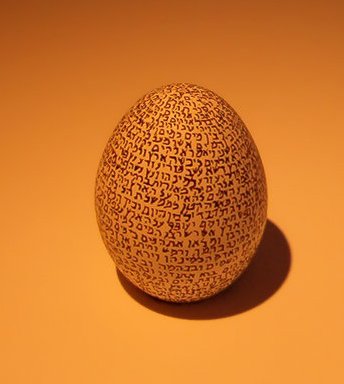
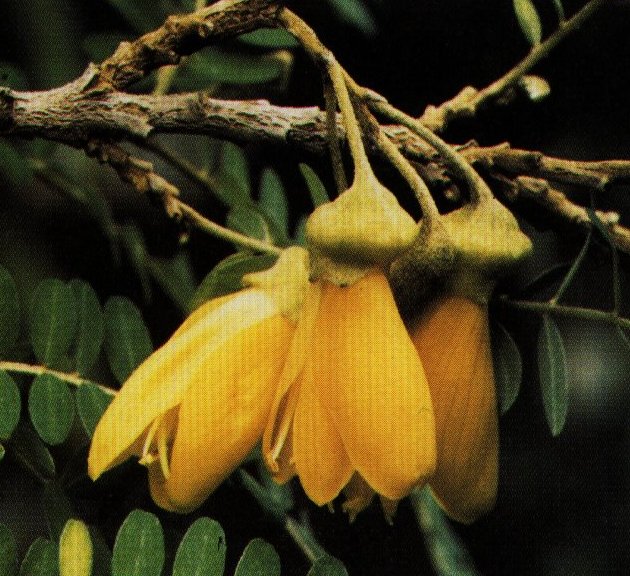




.jpg)
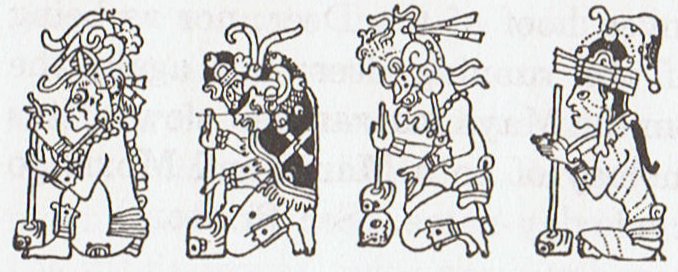

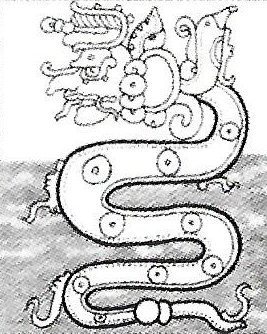
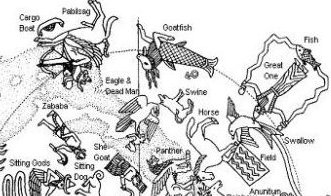
.jpg)